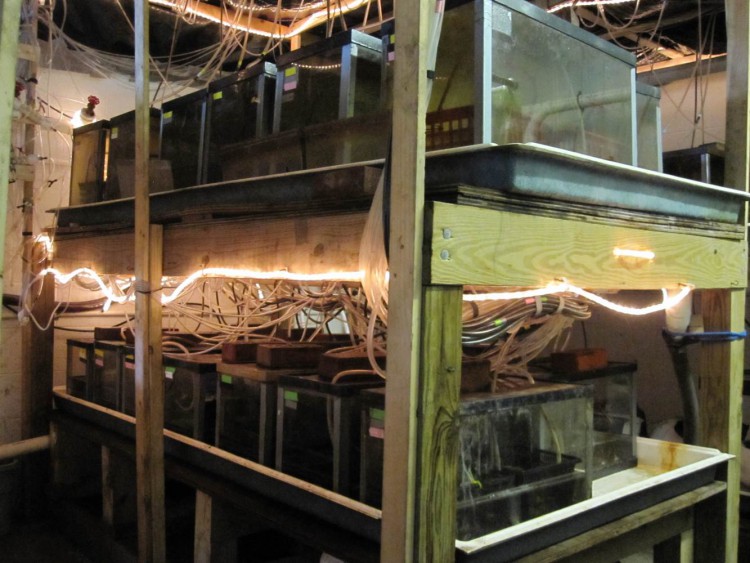A study funded in part by NCCOS has found that diel-cycling hypoxia – daily cycling of high to very low oxygen levels – in shallow coastal waters increases parasite infections in eastern oysters (Crassostrea virginica).
The project team tested and confirmed that diel-cycling hypoxia increases eastern oyster susceptibility to Perkinsus marinus infection, most likely by reducing the oxygen carrying capacity of the oyster’s blood.Perkinsus marinus – the parasite that causes Dermo disease in oysters – has contributed to dramatic population declines in eastern oyster in Atlantic and Gulf Coast estuaries, including the Chesapeake Bay.

Diel-cycling hypoxia occurs in the sunlight zone of coastal waters during night and early morning hours, when plant and animal respiration exceeds oxygen production by photosynthesis. Research usually focuses on long-term, bottom-water oxygen depletion (i.e., dead zones). Far less is known about the effects of diel-cycling hypoxia, common in shallow-water nearshore environments.
Hypoxia is a widespread problem in estuaries and nearshore coastal ecosystems. Scientists have already found that hypoxia increases mortality, reduces growth, alters behavior, changes food webs and biogeochemical cycles, impairs immune systems, and increases pathogen-related mortality in marine and estuarine fish and invertebrates.
Study results are published in the online journal PLOS One. Parts of the study are supported by Maryland Sea Grant.
For more information, contact David.Kidwell@noaa.gov.
